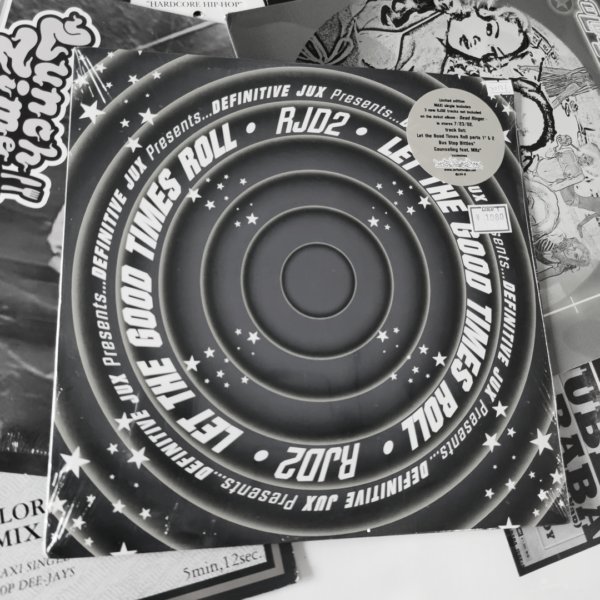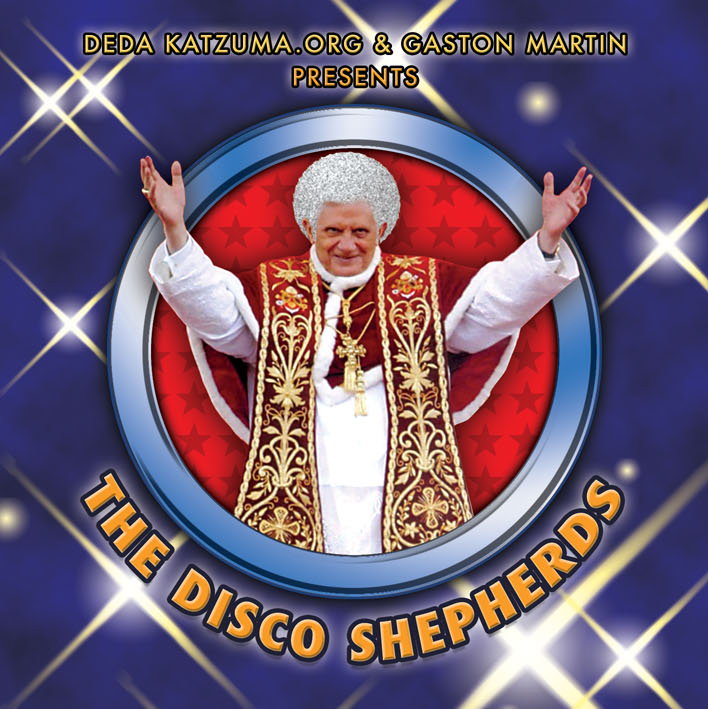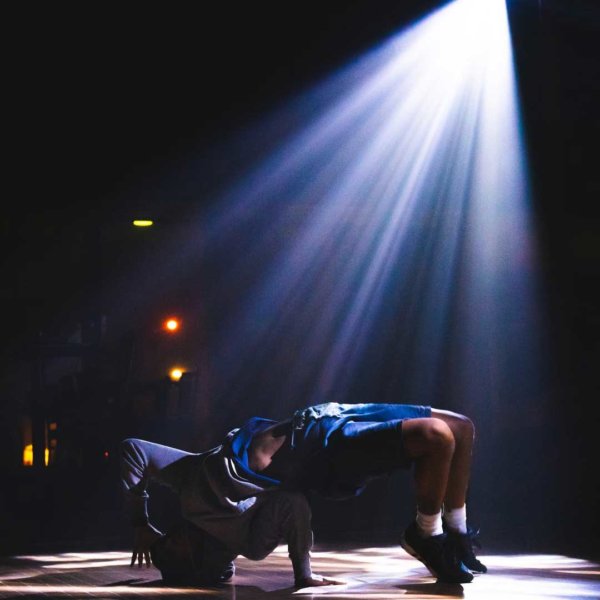Def Jux Records from 2000 to 2004: more than El-P’s brainchild.
Before taking you on the path of exploring the catalogue of Definitive Jux Records (or Def Jux, in its pre-legal battle with Def Jam version), we’re proud to tell you that our latest label-themed mixtape is quite different from the previous ones, for a few good reasons.
First and foremost, it does not cover the entire production of the label, but only the first 4 and possibly most relevant years, from 2000 to 2004.
We chose to stop there not only because it is halfway through the life of the label, which went out of business in 2010, but also because what seemed a definite and stable sound, towards 2005 began to change.
We determined that from that point onward a new mix is worth doing. So, at some point, you’ll know…
Second, the tracklist and overall curation have been undertaken by our long-time friend and partner in crime Emcee O’Zì. He has lent us his taste in the selecting part as well as his mixing skills and overall Definitive Jux-fanatism!
Emcee O’Zì insisted on a strictly chronological mix, so you will find at the opening one of the very first pieces released in 2000, followed by the process of development of Def Jux’s sound over the years. But now it is time to leave the word to him for the presentation of this endeavour.
The mix was conceived in the format of storytelling, in which I tried to chronologically follow some of the label’s most significant releases. The aim was to describe the evolution of sound in the early years, in my opinion, a period of which we should talk about a lot more.
We are inundated with documentaries, podcasts, and books of retrospectives on the past, but very rarely we talk about that historical moment, and even more, rarely are the right credits given to realities like the Def Jux.
Props to Strettoblaster for having this space dedicated to it, I cannot be more honored to be part of it, good listening”. – Emcee O’Zì
The sound of Def Jux counterbalanced a corny era in Hip-Hop.
Def Jux was one of those labels that marked Hip Hop history in general, and that of the early Y2Ks in particular. Frankly, El-P and his associate Amaechi Uzoigwe had the scene completely shaken up, by all means.
The duo (Amaechi has been a long-time partner of El-Producto, to this very day, as manager of the unit called Run The Jewels) was, in fact, the creative force that brought to the game many new names with disruptive flavour.
We’re talking about the likes of microphone master Mr. Lif, super-producer RJD2, the now legendary Cannibal Ox outfit, or again Aesop Rock. These are only a few names from the roster, all of them held tight and acclaimed by both critics and fans, in what the media considered the incarnation of the so-called backpack movement.
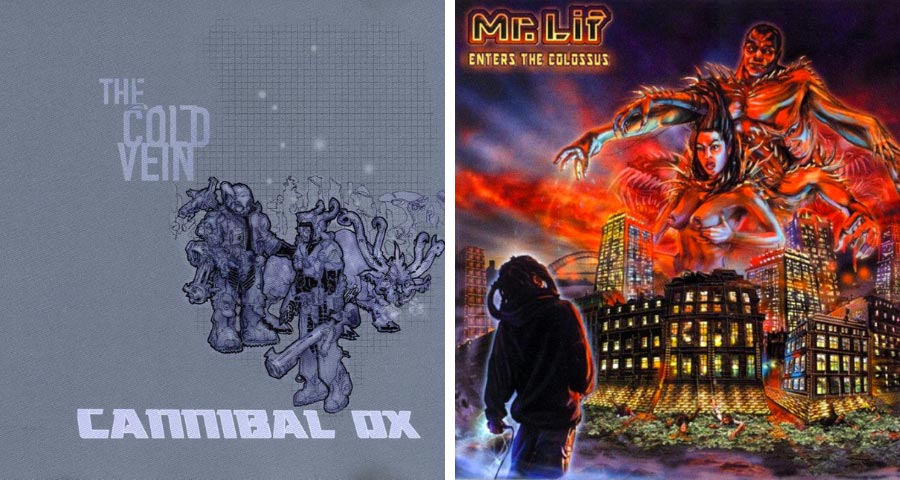
Mr. Lif and Cannibal Ox, releases of the early Def Jux era
The backpackers came, and everything changed…
If you’re not accustomed to the term “backpack rap”, or “backpack movement“, let’s just say that it was coined around the late Nineties to describe those rappers who rejected the industry pop-ish rules.
The focus of the movement was on deep lyrics and microphone dexterity, as opposed to the shiny-suits-rap era materialistic narrative and poorly executed chants and singsongs.
Intellectualism, freestyle battles, the subway writing culture, and ciphers outside the venues were the foundation, with records and songs depicting a certain lifestyle and an attachment to blue collars lives and down-to-earth topics.
Most of these rappers (think of the likes of Mos Def and Talib Kweli, or El-P too, in his prime) used to wear backpacks on-stage when attending shows and jams. If you recall properly, a rapper with a backpack was depicted on the Lyricist Lounge album cover, for instance. Hence, also the listeners of this conscious rap sub-genre were dubbed “backpackers”.
Let’s think of “backpacker-ism” as the extreme act of resistance, at the end of the Nineties, to a Hip-Hop that was definitively morphing into the Pop music of our days. Whether consciously or not, said morphing happened in a rather garish, when not straight-up corny, way.
Of course, the backpack attempt didn’t have the proper conditions to fully succeed commercially, starting from a rather “poor” aesthetic and conceptual basis. And, last but not least, it was confronted with the cultural industry in its most aggressive form.
However, in hindsight, we must give backpackers the honor of arms, without falling into an easy, hypocritical a-posteriori justification of the strength of the market as an inevitable historical necessity.
Hip-hop as an alleged alternative underground music, at least in the self-comforting myth we used to tell ourselves in Europe, had failed and was quickly normalized and subsumed.
Alas, that was the end of it. This by no means implies that everyone was ready to accept it: El-P and his friends were definitely not ready to accept it. That said, Definitive Jux, Inc. was an anyhow different phenomenon than backpack rap.
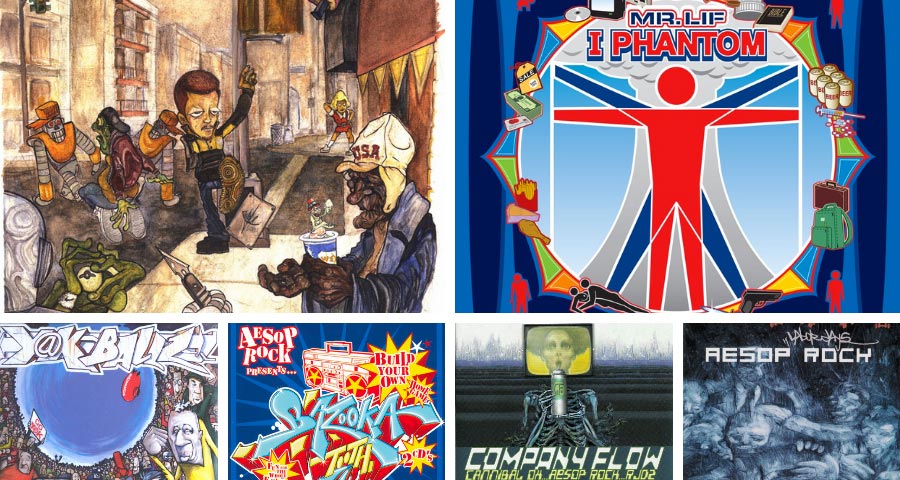
The aesthetics of the Def Jux sound shaped its impact too
A declaration of estrangement from the mainstream: what happened to Def Jux Records?
In between 2000 and 2004, at his pinnacle, Def Jux was the acknowledgment that the battle for “that” kind of Hip Hop, as independent and underground music/culture, was lost.
At that point, the response of El-P and his associates to the mainstream seemed to mean: “We have nothing to do with it and you, neither musically nor aesthetically“.
Let’s face it, that’s what attracted so many people to the Def Jux sound.
Co-Flow had paved the way a few years before, and the Definitive Jux experience just kept high the same banner, maintaining that feeling of never having to stoop to those slightly glossy sounds that were now all the rage.
Almost in the same years, Anticon Records was producing its best works, but it never had the fanbase and the exposure of the Def Jux, also due to the different geographical position. Being from New York back then still had a fundamental and career-changing weight.
Personally, I believe that that period of time, 2000-2004, was the best one for the label, in terms of quality and consistency. What came next had lost its cohesion, becoming more disparate in sound and more dispersed in its inspiration.
Nevertheless, I must confess that I discovered Def Jux slightly later, with the first, amazing, solo record of El-P, then recovering backward the sense of the discourse that had been built.
As for many, I suppose, the record that I studied and loved the most was that of Cannibal Ox, one of the few Hip Hop records that truly manages to transcend the sometimes narrow limits of the genre, to become sic et simpliciter beautiful music in general.
These fundamental records were instrumental to the expansion of the label as well as to its death, paradoxically. Media operators and journalists pigeonholed the label as the natural prosecution of the backpacker movement, fueling its diffusion amongst white crowds and further estrangement from the original black crowd.
On top of it, personal problems from El-Producto, in a weird time of his life and place in his career, were badly matched to the challenges of the industry and the “control freak” approach to the music production of our Brooklynite friend. At some point, the creativity and the ego went at odds with the business, and the weirdest “beefs” exploded among El-P and his peers, and…Other stories to be told.
…and a mostly white audience ended up Def Jux and its “original rap” culture.
Adding up to the deep changes in media outlets, crowd, and scenario in the rap circuit in mid-TwoThou, El-P’s own life events came to play a role in the development and the subsequent fall of Definitive Jux.
In its intention, Def Jux was just another expression of the NYC mixed-up culture. Same way of Fondle ‘Em Records, for instance.
The melting pot in which a white kid from Brooklyn and his African-descendant friends were growing up without boundaries of any sort. The place where you could find a certain ethos and craft for Hip-Hop, in its purest form, regardless of money and big commercial impacts.
If you could rap, and spit rhymes, and you were serious about it, as El-P was, your skin color wasn’t as relevant as your skills. And, as a white kid, you were confronted by people of different ethnicities than yours, mostly.
That’s how El-P grew up listening to Public Enemy, to finally find himself featured on The Source magazine (the major black outlet for HipHop in the Nineties), whilst his music was aired in the black circuit by mixtapes and radio shows. If the likes of DJ Premier, at the pinnacle of his underground research years, were playing your stuff, it meant a lot.
El-Producto and Co-Flo weren’t just making rap: it was a cultural thing.
El-P was interested in making Black music and having an impact on it. In an interview with an Italian fanzine in 1997, discussing its productions of the time, he admitted to our friend David Nerattini that “The Fire in Which You Burn” was heavily inspired by Audio Two, and intended to be the 90’s Top Billin’, to some extent.
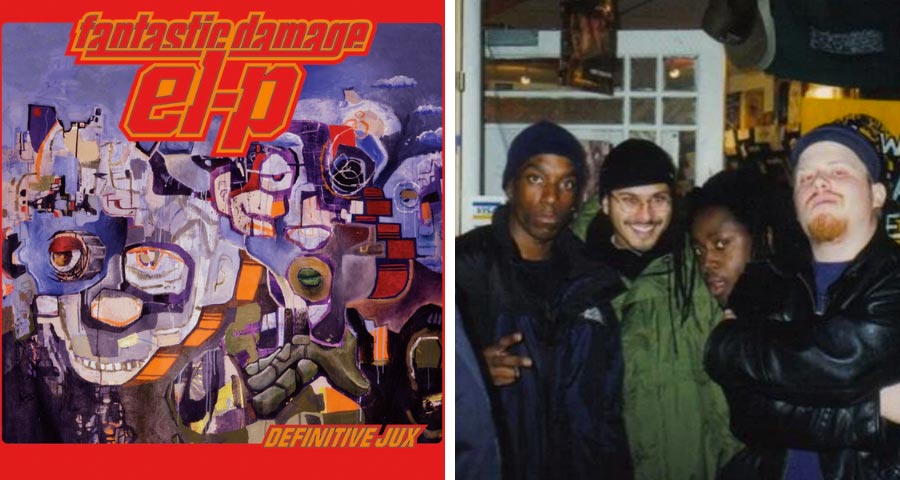
El-P during the Nineties with a few “friends”, and the cover of his Def Jux classic “Fantastic Damage”
But down the path, at some point, that kid became, unbeknownst to him and his accolades, along with his label, detached and neglected to the original multi-cultural/black audience. Instead, he became the poster boy of the remainders of the backpacker movement. A mostly suburban, massively white, offbeat-ish, and, by mid-TwoThou, somehow disconnected audience.
This kind of auditorium, not being at all innercity-related and culturally linked to the AfroAmerican communities from where El-P took all his inspiration, overlooked the quality of sounds, the poignancy of lyrics, and the total package Hip-Hop package Def Jux was standing for.
Furthermore, the original Black audience was definitely most interested in what the industry was offering in terms of poppy raps and mainstream culture.
As the guy declared in many parts of a long interview he did a few years ago on NYC’s own Hot97 radio, when questioned about the reasons for the dissolution of Def Jux, he answered saying that his main problem was that he wasn’t happy about being pigeonholed in a “backpack-rap” bubble, mostly because of the audience and aesthetics that came with it.
Apparently, from being embraced by a mostly Black crowd up in The Source (as it was in his prime with Company-Flow) to being stuck as “offbeat-White-backpack-rap”, wasn’t much fun.
Ironically, it’s also true that sort of this very change in the rap crowd after TwoThou was largely due also to Def Jux Records, and its entire catalogue.
The following tribute mix is just a snapshot dedicated to one of the fundamental actors of a time of change: to be precise, this is a particular narrative of the first few, incredible, years of that story.
Enjoy the tracklist and best regards y’all!
The Blast Podcast #137 – A Tribute to Def Jux Records
01 DPA (as seen on tv) – Company Flow
02 Arise – Mr. Lif
03 Life’s Ill – Cannibal Ox
04 Ox Out The Cage – Cannibal Ox feat. El-P
05 Vein – Cannibal Ox
06 Paper Mache – Masai Bey
07 Labor – Aesop Rock
08 Fantastic Damage – El-P
09 Tuned Mass Damper – El-P
10 Nickel Plated Pockets – Aesop Rock
11 June – Rjd2 feat. Copywrite
12 Return of the B-Boy pt.1 – Mr. Lif
13 Def Cover – Murs
14 Razor Fund – The Presence feat. Alaska & Vast Aire
15 11:35 – Aesop Rock feat. Mr. Lif
16 Illy – S.A. Smash
17 3:16 Intro – Murs
18 Homesickness – Despot
19 Telicatessen – Rob Sonic
20 Saved by the Beezy – Hangar 18
